Fareed Khan’s first “visceral” memory of Canada, after emigrating from Pakistan, was having his face pushed into the ground so violently by white schoolmates that it required five stitches to close the gash. He was six-years-old at the time of the attack.
Yazan Nasreddin left a copy of the Qur'an on his car’s dashboard in the middle of a parking lot. When he returned, someone had thrown a rock through his windshield.
One of Natasha Akhtar’s daughters, both of whom were born in Canada, came home from school in tears because she had been told she couldn’t play with the others because, as she told her distraught mother, “I don’t have blue eyes.”
When Rana Zaman, an immigrant from Pakistan, ran for politics in 2017 and 2019, she and her team have received Islamophobic and racist comments. Some were so extreme that her team members decided it was better not to tell the candidate.
All four of the above-mentioned people share three things in common: they are all Muslim Canadians; they have all experienced racism up close and personal; and they have all decided, in their own way, to do something about it. By speaking up, and speaking up loudly.
Another thing they all agree on is that Canada is sleepwalking through a very dangerous uptick in the wave of Islamophobia that has been building since suicide terrorists flew a plane into the World Trade Centre and other targets in 2001, killing 2,977 innocent people.
Triggered by a monstrous act of mass murder, the War on Terror was declared. Two billion people worldwide suddenly became pariahs. Akhtar’s reaction? “That is insane.”
And the problem is growing. As reported by the CBC’s Elizabeth Thompson, a soon-to-be released report has found that online activity by right-wing extremists in Canada grew last year. Researchers identified 2,467 right-wing extremist accounts. Those accounts produced 3.2 million pieces of content in 2020, and generated 44 million reactions.
The report, by the U.K.-based Institute for Strategic Dialogue, attributed the rise in hate speech in part to the pandemic.
“The pandemic has… created a febrile environment for radicalization, by ensuring that millions of people have spent more time online. In an environment of heightened anxiety, the situation has been an easy one for extremists to capitalize on. As a result of the pandemic, extremist conspiracy theories have flourished, and minority communities — in particular Asians — have been subject to increased hate crimes and harassment.”
The institute’s researchers found that on one social media site, Telegram, there were 17 groups focused on Canadian affairs. Seven channels hosted white supremacist communities, seven ethnonationalist communities and one hosted an anti-Muslim community.
Khan has felt the bite of Islamophobia all his life. Like Khan himself, his younger brother was jumped “by a bunch of white kids” on his way home from school and beaten. He ended up in hospital with internal bleeding.
Khan’s aunt was assaulted by two teenage girls at a bus stop. They knocked her to the ground, breaking her wrist.
As grown men, and before COVID-19, Khan’s businessmen brothers stopped travelling. They grew weary of having to show up at the airport five hours before their flights. Their names and appearance often led to hours-long security checks.
“I started Canadians United Against Hate two years ago, in part because every person in my family has been directly affected by violence. My family has been affected by racism since the day they arrived here. Racism diminishes potential, and beats people down. A lot of the racism is of the silent variety,” Khan told The Tyee.
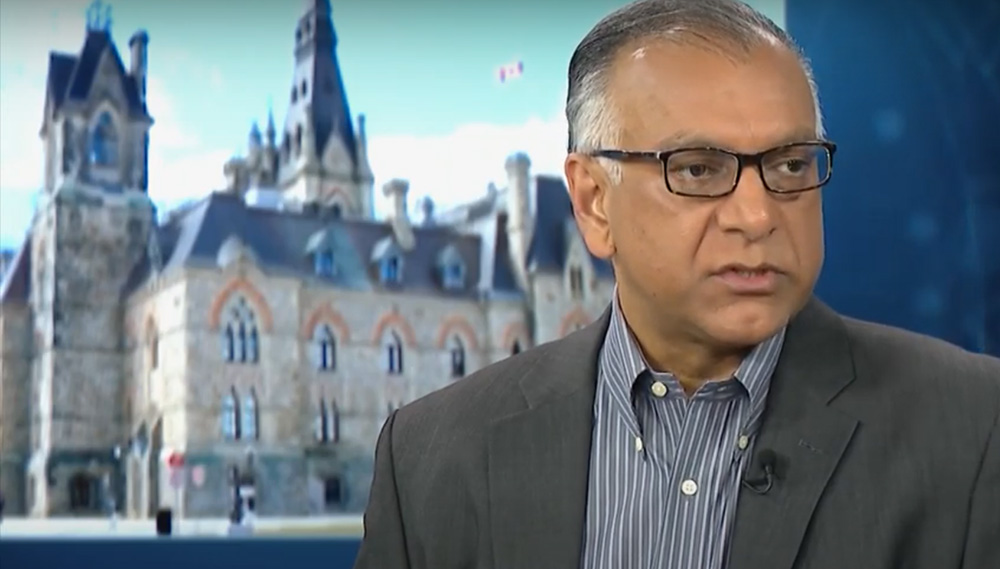
Akhtar, president of the New Brunswick chapter of the Canadian Council of Muslim Women, knows all about the thinly veiled racism faced by immigrant women generally, and Muslim women in particular. A group of women in her neighbourhood asked her very politely whether she wouldn’t be “more comfortable” living in Lincoln Heights, where the Muslim community is centred in Fredericton, New Brunswick.
Though neither she nor her daughters, now 16 and 13, have ever worn the hijab or been veiled, they are routinely questioned about their native country and religion based on their appearance alone. They are routinely objects of suspicion. “I look Middle Eastern, curly hair and brown, that sort of thing,” Akhtar told The Tyee. “Even though I’m Muslim, that is not all I am.”
Akhtar organizes panels with political candidates to ask them how they plan to keep neighbourhoods safe for all ethnic groups, and to make immigrants welcome. Along with an Egyptian and a Black colleague, she also co-hosts a twice-weekly podcast that deals with “the hidden dirty laundry” of New Brunswick’s treatment of immigrants and people of colour, including Muslims. The podcast is called “We Can Fight Like Cats If We Have To.”
Akhtar, who studied pharmacology at the University of Rhode Island and speaks English, French, Urdu and Arabic, ran for the NDP. Though she did not win, the experience was exhilarating but also unnerving.
“I had anxiety about knocking on doors. I faced amazement. ‘What is she doing? Is she crazy?’”
Yazan Nasreddin still remembers the day in Montreal in the wake of 9/11, where he was touched by the incarnation of hate. With his dark eyes and complexion, black hair and beard, he stood out as a Muslim. A man suddenly accosted him, screaming “Fuck all Muslims,” before melting away “like a shadow” into the crowd. Nasreddin went into shock.
“Why say fuck all Muslims? I am against 9/11 heart and soul. Did he ask me what I really thought? No, he just sent a message of hate because I was Muslim. How can you hate someone without knowing their thoughts?” Nasreddin wondered to me.
In 2017, a horrible event revealed the virulent hatred of Muslims felt by some in this country. A young white nationalist walked into the Islamic Cultural Centre in Quebec City and proceeded to open fire on Muslim worshippers. Alexandre Bissonnette shot six men dead on the spot and seriously wounded six others. He eventually pled guilty to six counts of first-degree murder and six counts of attempted murder.
It was graphic and bloody proof of what people like Khan, Nasreddin, Akhtar and Zaman had been trying to tell Canadians for years — that the country has a deadly serious problem with race hatred. Did Canada learn from the slaughter at the Quebec City mosque?
“We didn’t learn anything. In fact, it became worse,” said Nasreddin.
Citing personal experience, Akhtar expressed the sense that the Quebec massacre did nothing to improve the plight of Muslims.
“The same families that were hostile when we came here, well, 17 years later, they are still hostile.”
Zaman, who sits on several boards and is running for the Green party in Nova Scotia’s current provincial election, sees the same lack of progress.
“I don’t think we’ve done better since the Quebec City killings. If we had, why would we have more Muslim dead? Why would we still have Bill 21 in Quebec?”
(Bill 21 bans public workers from wearing religious symbols, including hijabs, niqabs, turbans, crosses or kippahs.)
Zaman partly blames gutless and opportunistic politicians for the terrible crimes against Muslims. In her view, they simply played the Islamophobia card for short-term political gain, and it all went horribly wrong.
“Any slightly observant person who is reasonable would have to admit that politicians opened the floodgates of racist behaviour. Trump created fear in America of all Muslims. He banned them. Stephen Harper encouraged people to snitch on your friend or neighbour. He empowered people to attack other people. If they don’t like my look, my house, or the smell of my cooking, they were empowered and encouraged to officially complain. What does a snitch-line on Brown people have to do with policy?”
The response to the Quebec City mosque massacre was not the finest moment for Canada’s Parliament. The Conservative Party of Canada and the Bloc Québécois opposed a motion to unanimously condemn Islamophobia and all race hatred. The same thing happened in the Ontario legislature, which left Muslims gasping in disbelief and rage.
“After Quebec City happened,” Khan told me, “and after the lack of government response, I had a sick feeling that something would happen again.”
Tragically, he was right. In June, 20-year-old Nathaniel Veltman was charged with purposely using his specially equipped pickup truck to run down and nearly wipe out an entire Muslim family. They were out for an evening walk in London, Ontario.
Salman Afzaal, his wife Madiha, their 15-year-old daughter Yumna and Salman’s mother, Talat Afzaal, were all killed. The only member of the family to survive the terror attack was nine-year-old Fayez Afzaal, now orphaned.
Akhtar was on social media after the murders and shared with The Tyee a chilling screenshot of a post extolling the shooter after another post had denounced him. “Bullshit. He should be given a medal.”
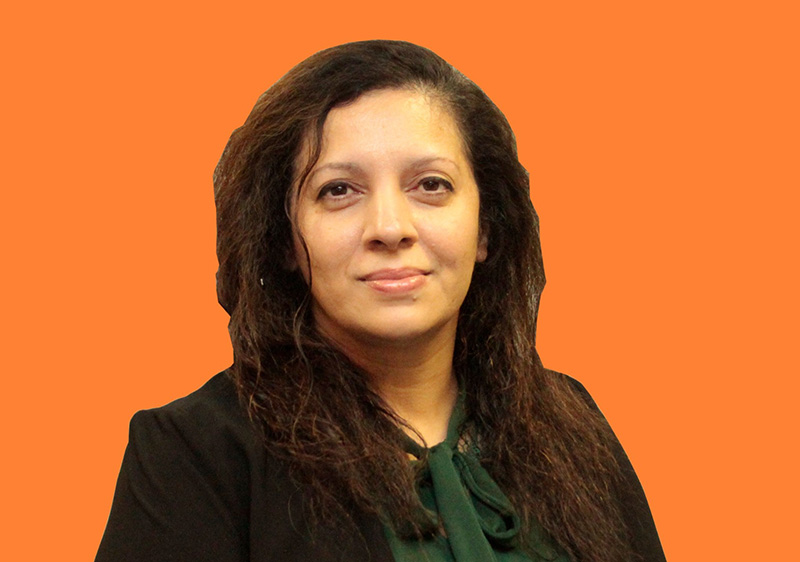
Why are the killers of Muslim Canadians so often young white males? Khan has a theory.
“They suffer from a disconnect with the world around them. They go out looking for something that validates them. They find voices of hate gathered together in hate. They find some sort of comfort, they listen to those voices, the ones who are saying, ‘The Muslims are taking over our land.’ They feel like they have to go out and do something about it. Then, already on edge, something happens that triggers them. They are already predisposed to hate. They have to be treated the same way as we’ve seen programs for de-radicalizing Muslim youth.”
Just a week after the unspeakable London killings, a masked man attacked two young Muslim women wearing hijabs in St. Albert, Alberta. Their assailant knocked one woman unconscious and threatened the other one with a knife, before scarpering into the woods.
The Trudeau government finally announced measures it hoped would reassure the Muslim community that it would at last take action against Islamophobia in Canada. But it was really the NDP that got the ball rolling. Lindsay Mathyssen, the NDP MP for London-Fanshawe, put forward a motion calling for an emergency summit on Islamophobia, which is being held today, July 22. Unlike 2017, this time the House of Commons voted unanimously to adopt the motion.
Khan for one was deeply unimpressed, particularly with the outpouring of what he called “crocodile tears” over the London killings. He described the summit as just another useless “gabfest.”
“When I saw the speeches in Parliament after the Afzaal family was slaughtered, I wanted to vomit. Some of these MPs and their parties were pouring fuel on Islamophobia when they had power. Some voted against condemning Islamophobia a few short years ago.”
Khan also had harsh words for Ontario Premier Doug Ford, who scrapped the minister responsible for anti-racism when he came into power, as well as subcommittees of the Anti-Racism Directorate.
“I think it says, ‘My government doesn’t really care about fighting racism.’ Doug Ford is about as fake a politician as you will find. Standing in front of Muslims with crocodile tears, hoping people forget that he voted against a motion to universally condemn Islamophobia.”
Khan has met with federal authorities to lay out in detail an anti-hate strategy he believes would protect Muslims, Blacks and LGBTQ+ communities. He proposed 18 recommendations, including these key points:
“That the federal government initiate and lead efforts to develop and implement an aggressive, national anti-hate, anti-bigotry strategy targeting all forms of hate, bigotry, and racism in society, as well as systemic racism and hate on all media platforms, with a strong focus on social media”;
“That social media platforms and web hosting services (whether located within or outside Canada) that have audiences and users in Canada be legally compelled to monitor their platforms and services for hate speech; to remove it promptly when they are made aware of it; to develop a strategy to combat hate speech on their platforms and services; and if unwilling to comply with Canadian laws, be financially penalized commensurate with their annual revenues, and their executives be made criminally liable for failing to comply with Canadian anti-hate laws, and where possible, be extradited to face prosecution”;
“Where provincial governments implement legislation or regulations that enshrine racism or bigotry into law (e.g. Quebec’s Bill 21 “secularism” law), the federal government immediately refer the legislation to the Supreme Court at the time it is enacted, to challenge its legality and legitimacy under the Charter of Rights and Freedoms”;
“That all political party leaders commit themselves to removing from their parties and caucuses any members of Parliament and candidates who are found to have promoted, espoused, or shared racist, bigoted, or hateful messaging, which as targeted, delegitimized, or dehumanized any minority community, and thereby threatened their safety”;
“That the federal government work with provincial governments to introduce into primary and high school classes mandatory core curriculum that looks at issues of hate, bigotry, racism and xenophobia, and the historic victimization of minority communities in Canada and in foreign countries, where ideologies of hate and bigotry have led to atrocities, crimes against humanity, and genocide.”
“They listened to me politely, then nothing,” Khan said.
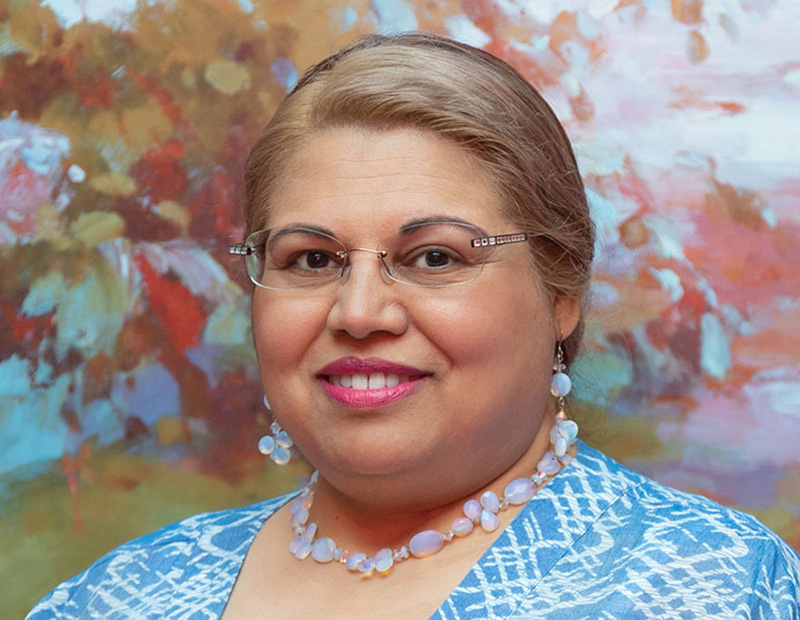
So far, the Trudeau government has denounced Islamophobia and shovelled money into local communities to fight hate crimes.
It has also appointed Mahmud Jamal to the Supreme Court of Canada. Jamal was raised at home as a Muslim and became the first person of colour to become a Supreme Court justice. On his long journey from childhood in Kenya, to the U.K. and finally to Canada, he was “taunted” and “harassed” because of his name, religion and skin colour.
Does putting the first person of colour and a man with a Muslim upbringing on the highest court in the land win instant approval from other Muslims? Not necessarily.
“I am going to wait and see,” Zaman says. “There has been a lot of tokenism aimed at our community. We will not know if this appointment is a true watershed moment until we see what he does on an actual case.”
Zaman’s caution is understandable. The plain truth of what the Liberals have done about hate crimes, including Islamophobia, is not very flattering. It has taken the Trudeau Liberals six years in power, and two atrocious slaughters of Muslim Canadians, to introduce Bill C-36.
If passed, the legislation would effectively revive Section 13 of the Canadian Human Rights Act, the so-called “hate-speech” provision. That provision was axed by the government of Stephen Harper in 2013 as an alleged threat to free speech.
The provision stipulated that a person couldn’t communicate any material “that is likely to expose a person or persons to hatred or contempt.” Bill C-36 would again make it a “discriminatory practice” to communicate through the internet, where it is “likely to foment detestation or vilification of an individual or group of individuals on the basis of a prohibited ground of discrimination.”
The justice minister pointed out that the legislation doesn’t target “simple expressions of dislike or disdain that pepper everyday discourse, especially online.”
But here’s the catch.
The legislation was proposed by David Lametti hours after Parliament rose for the summer recess. After so many years of doing nothing, why act now when Parliament can’t deal with it? The Conservative opposition immediately accused the government of using the tragedy in London, Ontario, to troll for votes in the widely expected federal election this fall. No one can blame Canadian Muslims if they’re not jumping for joy.
“I think Justin Trudeau’s actions on this file have demonstrated his failure to address what is happening with minority rights in Quebec and across the country. If Trudeau had any real moral compass, he would issue a statement that he is opposed to Quebec’s Bill 62 and Bill 21 and refer them directly to the Supreme Court of Canada. By not doing so, he is telling the country his political objectives are far more important than trying to protect human rights,” Khan said.
As for the PM, he recently spoke at a mosque and told his audience not to depend on government alone to fight hate crimes.
Khan made one other point. All the money being spent on providing security for mosques is a feel good rather than an effective measure. Why? Whether cap or beard, or skin colour or hijab, Muslims in Canada are left to defend themselves when they are out in public — as the Afzaal family was.
Protecting mosques is a small part of the problem. What is needed is a massive public education program at the national level. It should be aimed at giving the public a better idea of what a Muslim is than the stereotypes provided in the media or the movies. And until that happens, a whole community will remain terrorized.
“There is palpable fear after Quebec City and now London. Friends of mine who wear the hijab, especially the ones who have children, are terrified. One of them had her eight-year-old son wake up from a bad dream and tell her, ‘We were out with a group of Muslim friends and some men in black came and started shooting all of us.’”
Whatever is driving the hate, we’re not in multicultural dreamland anymore. The status quo is no longer an option.
* Story updated on July 28 at 9:28 a.m. to correct an error regarding Bill C-62. ![]()
Read more: Rights + Justice, Politics


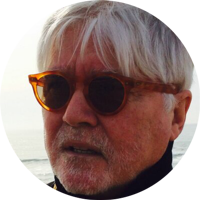
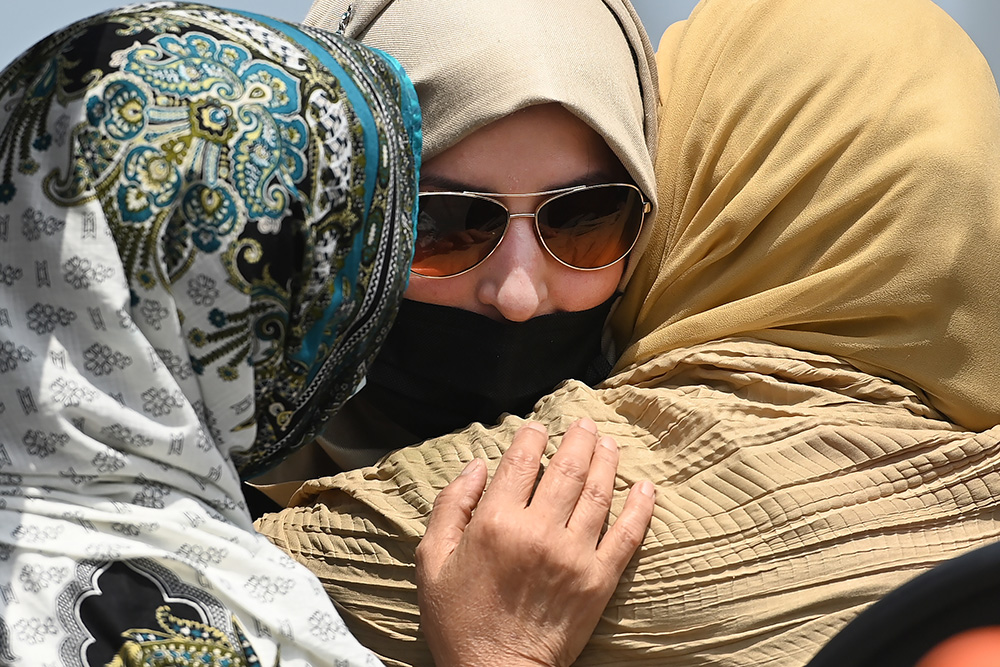












Tyee Commenting Guidelines
Comments that violate guidelines risk being deleted, and violations may result in a temporary or permanent user ban. Maintain the spirit of good conversation to stay in the discussion.
*Please note The Tyee is not a forum for spreading misinformation about COVID-19, denying its existence or minimizing its risk to public health.
Do:
Do not: